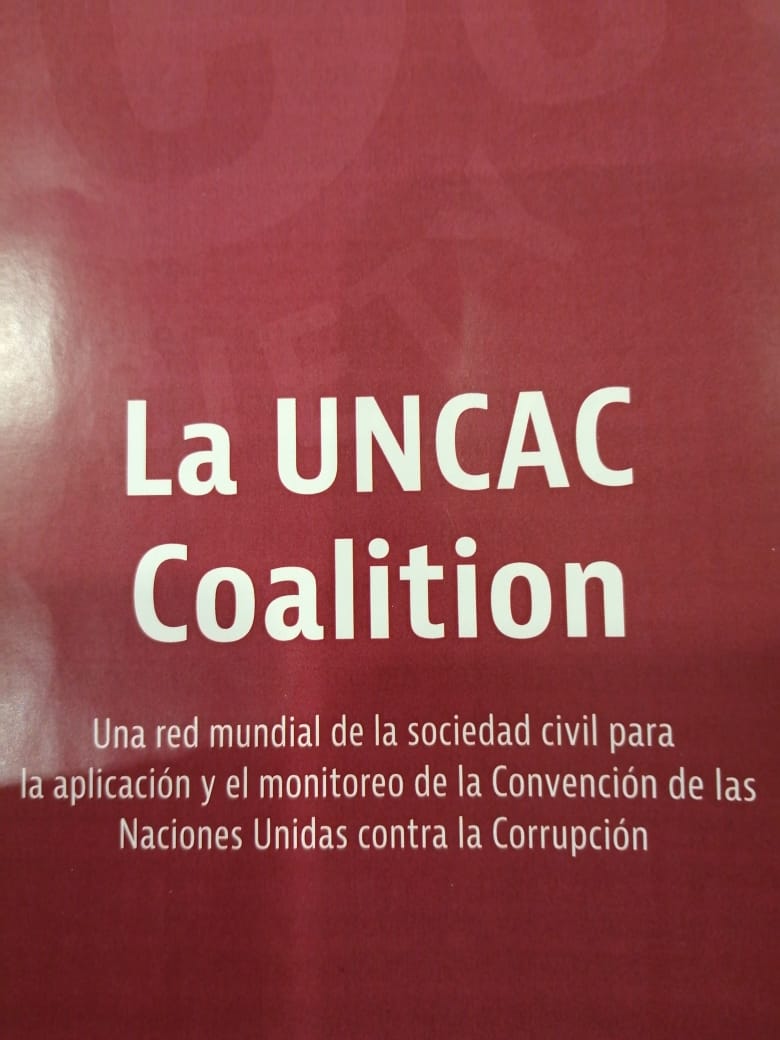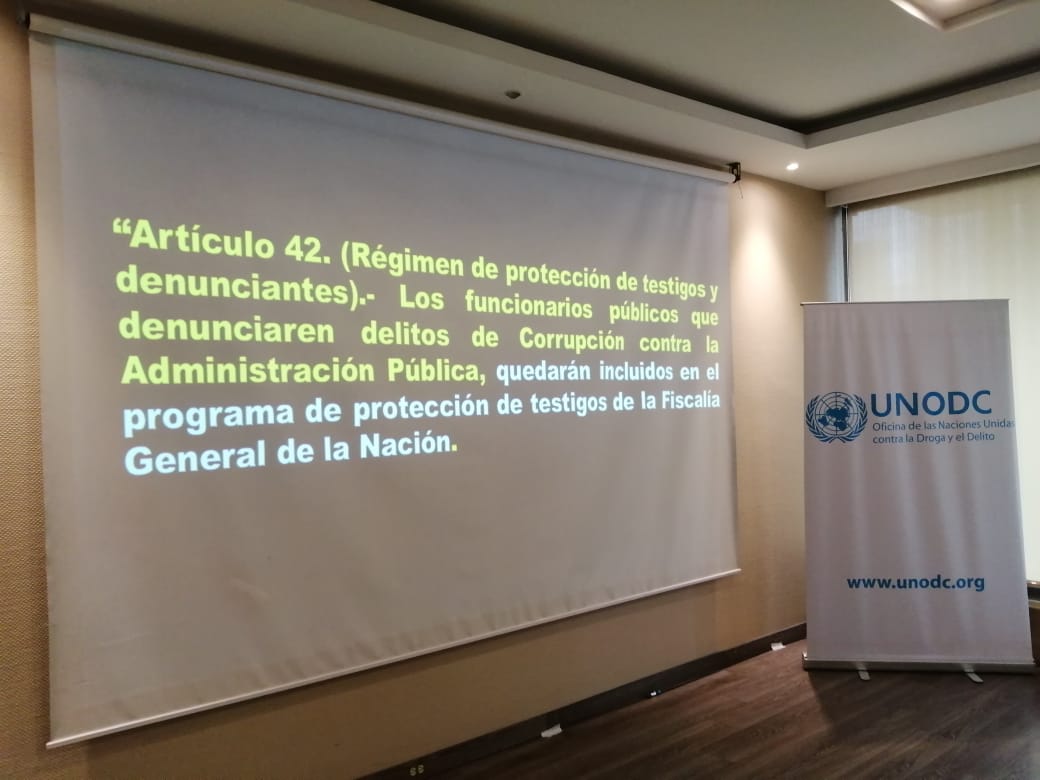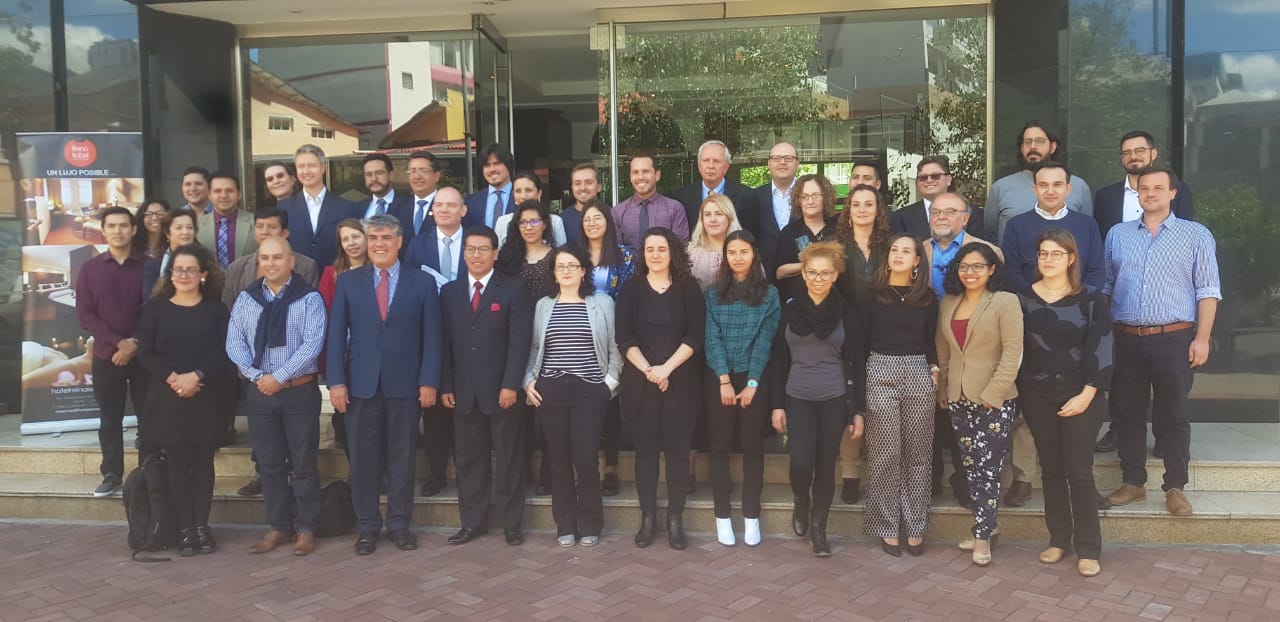Working notes
Quito Ecuador, February 18 - 20, 2020
Background
This forum is the follow-up to the Regional Anti-Corruption Conference for South America and Mexico that took place in Cartagena de Indias, Colombia, in May 2019. The Cartagena Conference focused on four thematic areas:
- Integrity systems focused on conflicts of interest and income and asset declarations.
- Liability of legal entities with emphasis on the adequacy of corporate compliance systems.
- Reporter protection.
- International Cooperation.
At the Round Table in Quito, the commitments will be followed up and progress on these four thematic axes will be evaluated.
First day
Roundtable against Corruption kicks off, sponsored by the United Nations Office on Drugs and Crime (UNODC), in Quito, Ecuador.
Four themes:
- integrity systems
- legal person responsibilities
- whistleblower protection
- international cooperation
10 delegations / countries and 29 Civil Society Organizations participate.
The United Nations Convention against Corruption (UNCAC) is an international cooperation mechanism with two key chapters: prevention and asset recovery and a mechanism to accelerate the implementation of the convention.
The Ecuadorian civil society leader Christian Antonio Cruz Larrea said that the solution to corruption lies in the following actions: transparency, practical actions, ethical training of children and young people, and citizen participation. Training in ethical and moral principles of society was also emphasized by Ecuador's Anticorruption Secretary, José de la Gasca.

Second day
Topics on day 2: legal entities and complaint lines. Limitations on the application of the laws is a regional problem. In addition, it is also a problem for judicial systems how to evaluate whether a compliance program is good, effective.
In Argentina there are guidelines on how to evaluate a compliance system. ' In Mexico there is not.
In Uruguay there is a protection procedure for those who report acts of corruption. This is one of the issues that requires attention throughout the Latin American region. In Uruguay, law 19,823, Code of Ethics in the Public Function, addresses the protection of Uruguayan whistleblowers.
The representative of Colombia said that it was not only a question of good institutional design. The reasons that people do not report are based on fear of retaliation, but the second is fear of social rejection, from colleagues, from others. This has to be approached from a cultural perspective.
In the region we have a very basic legal framework to protect whistleblowers. And many countries still do not even have a basic regulatory level on the subject. In addition, it is necessary to advance on this issue in the area of whistleblower rewards and protection of transnational whistleblowers.
There is a no-report culture throughout the Latin American region.

Third day
The Follow-up Roundtable for Civil Society Organizations (CSOs) that contribute to the Acceleration of the Application of the United Nations Convention against Corruption (UNCAC) has two areas of activity: 1) building and fostering alliances and creating platforms to accelerate the implementation of the Cartagena agreements, and 2) international cooperation to take advantage of regional capacities and knowledge.
The Cartagena document continues to be the list of central actions for civil society in the region. The important thing now is to reach an agreement to establish a regional monitoring system to evaluate compliance with the Cartagena commitments. This is the debate right now.
The Cartagena Declaration includes a list of recommendations for the governments of the region, which have been validated in Quito, to accelerate the commitments of the UNCAC.
